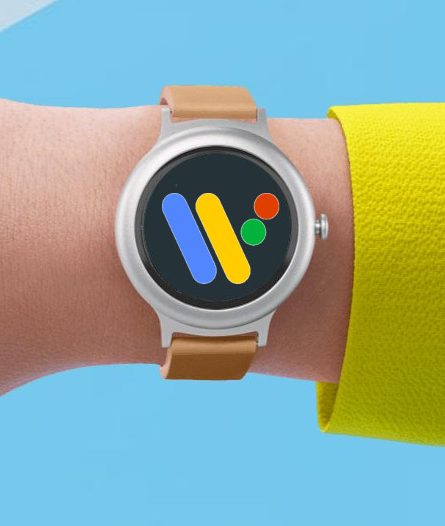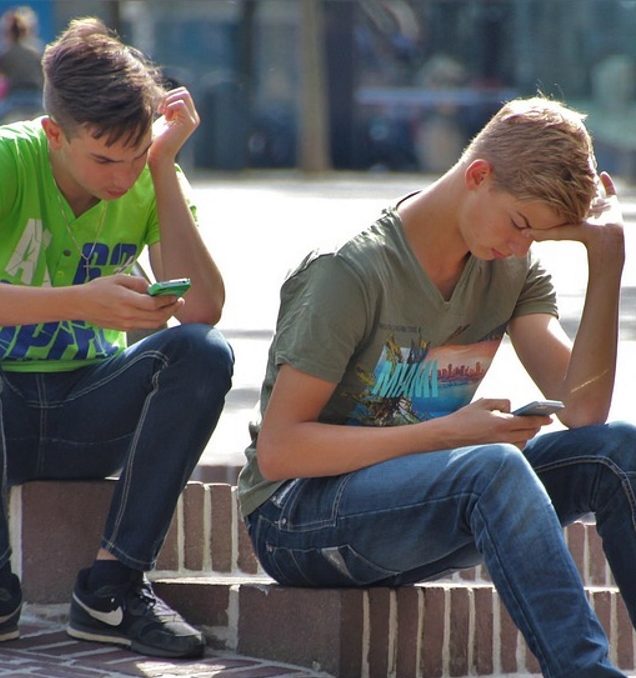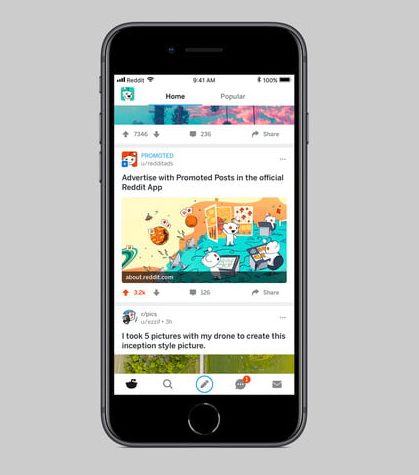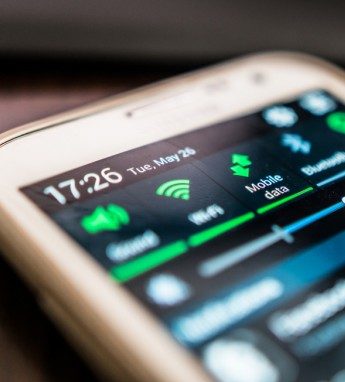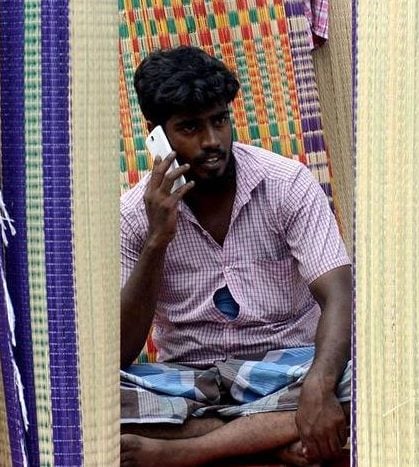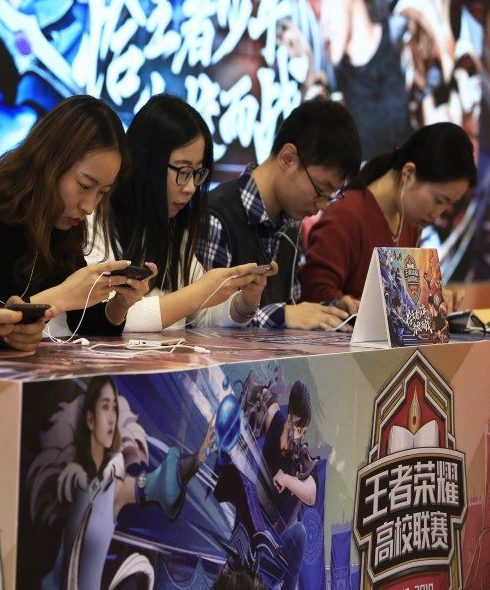Find out the week’s top mobile stories from around the world.
This week.. Google changes the name of Android Wear, Snapchat users 300 per cent more likely to shop on mobile, the shady world of mobile app tracking and much more…

Google just changed the name of Android Wear to Wear OS
The Verge
The Android Wear brand introduced in 2014 is going away and being replaced with a new name: Wear OS. A new area of Google’s website has officially confirmed the change. Wear OS even has a new slogan: “Make every minute matter.” For now, that’s really all the news there is; since it works on both Android and iOS, Google’s smartwatch platform is being given a more flexible moniker that doesn’t tie it to a specific mobile operating system. Apple’s software platform on the Apple Watch is called watchOS.
And even though Wear OS doesn’t give iPhone users all the same features as Android users, some iPhone owners are actually picking watches with Google’s software over the Apple Watch. “In 2017, one out of three new Android Wear watch owners also used an iPhone,” claims Google. Android users still make up the majority of customers, but it’s not as lopsided as you might think. Over 50 Wear OS watches have hit the market so far, and fashion brands have really gravitated to the platform. It can be a bit hard to tell some of their offerings apart at this point.
Read more…
Snapchat users are 300 per cent more likely to shop on their mobiles
Mobile Marketing Magazine
Social media platforms are leading millennials to spend more money on their phones than ever before – with UK Snapchat users 300 per cent more likely to buy items on their phones than the average Brit.
With 33 per cent of British Snapchat users happy to spend more than £100 on mobile, it puts them at 74 per cent more likely than the average Brit to spend that amount.
According to the study of 2,000 UK consumers, commerce marketing technology company Criteo also found that 64 per cent of people that use social media platforms at least once a week have made a purchase on a smartphone.
Read more…
Reddit scatters in-feed sponsored posts inside its mobile apps
Digital Trends
Reddit’s mobile app users will soon start seeing multimedia-sponsored posts inside their feeds. Reddit recently announced the rollout of native promoted posts. The ads will appear like a regular Reddit post with the same tools — excluding the blue “promoted” ad label — and will start rolling out to iOS users first, with Android to follow in the next few weeks.
Reddit anticipates the new Promoted Posts, a type of native mobile ad, will lead to more engagement because the usual slew of options like upvotes, downvotes, and comments are all intact. The platform’s existing mobile ad formats do not allow for comments, a change that the company suggests will result in better performance on those new ads.
Read more…
The shady world of mobile app tracking
Beta News
Most of us click on the Agree button when we install apps without actually reading the privacy agreement.
But some new research from Princeton University and other bodies reveals that many apps use a network of third-party services — often invisible to the user – that provide analytics, social network integration, and monetization.
Often, these mobile advertising and tracking services have an intimate view of the user’s activity and are keen to harvest personal data.
In all, the team identified 2,121 trackers — 233 of which were previously unknown to popular advertising and tracking blacklists. These trackers collect personal data including Android IDs, phone numbers, device fingerprints, and MAC addresses.
Read more…
High data cost hampering SA economic development
ENCA
The high cost of data is hampering economic development in South Africa.
South Africa has the highest data costs among Africa’s biggest economies and investors may be giving the country a wide berth as a result.
Lack of competition and spectrum seems to be two of the main reasons why the price of data won’t drop in South Africa and with only four major mobile communications companies MTN, Vodacom, Cell C and Telkom competing for customers, this is not likely to change soon.
A Mail and Guardian and Independent Communications Authority of South Africa (Icasa) data cost debate has highlighted the high cost of voice and data services remains a stumbling block to business and other opportunities.
Read more…
Mobile phone uptake in India accelerates
The National
India’s mobile phone market is on the rise, driven by factors including lower data costs and the availability of more budget smartphones being manufactured in India.
“In the last three years, 266 million mobile connections were added [in India],” said Manoj Sinha, India’s telecom minister, speaking a conference in New Delhi. “We had a meagre five telecoms equipment manufacturing units in 2014. Today we have a staggering 118 such units manufacturing more than 225 million mobile handsets.”
He added that while India’ is the “world’s second-largest consumers of the internet, more than two thirds of our population is yet to be online”.
Read more…
Ghana named Africa’s biggest mobile market
Ghana Web
A recent report on the Ghanaian Mobile Sector by Africa’s leading e-commerce company Jumia has revealed that Ghana is one of Africa’s largest mobile markets, with about 34.57 million subscribers and a penetration rate of 119%.
The report further revealed that there are 10.11million active internet users in Ghana meaning nearly ? of the country’s population have access to internet.
The report also shows that in 2017, 75% of Ghanaians preferred the cash on delivery option, compared to 5% & 25% for credit/debit cards and mobile money options respectively.
Read more…
Facebook launches Express Wi-Fi app for its local-operated hotspots
Tech Crunch
Facebook wants you to pay for internet. This week TechCrunch was tipped off that Facebook had quietly launched an Express Wi-Fi Android app in the Google Play store that lets users buy data packs and find nearby hotspots as part of Facebook’s distributed Wi-Fi network. The company’s Express Wi-Fi program is live in five developing countries that see local business owners operating Wi-Fi hotspots where people can pay to access higher-speed bandwidth via local telecoms instead of paying steep prices for slow cellular data connections.
Previously, Express Wi-Fi users had to dig out a mobile website, or directly download an app from a telecom that required reconfiguring a phone’s settings. There wasn’t any way to look up where hotspots were located.
Read more…
Tech giants rush for piece of China’s burgeoning mobile esports market
Tech in Asia
China is a country of gamers: it’s the world’s largest gaming market by revenue. And as China’s smartphone population continues to grow – it’s about double the size of the US populace – mobile esports, a nascent but fast-rising segment of competitive gaming, will be an important growth driver.
“In Asia and China, the mobile phone is especially important in people’s everyday lives, even more so than in the West,” Jurre Pannekeet, market research firm Newzoo’s head of esports, tells Tech in Asia.
That, combined with increasingly sophisticated smartphones and competitive mobile games, such as Tencent’s smash hit Arena of Valor, “sets up the stage for mobile esports to become huge [in Asia],” he explains.
Read more…
Mobile leads the way in gaming spend
Mobile World Live
Direct spending on mobile games was more than the combined total on consoles and PCs in 2017, a study by App Annie and IDC found.
“Mobile game spending was 2.3-times PC gaming and 3.6-times game consoles last year,” App Annie SVP of research Danielle Levitas wrote in the companies’ joint Gaming Spotlight 2017 Review report.
“With billions of mobile devices in the world, apps are the mass market gaming platform for casual and serious gamers,” she noted.
The study also found games generated nearly 80 per cent of worldwide consumer spend for iOS and Google Play, although they only accounted for around 35 per cent of global downloads.

